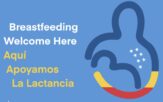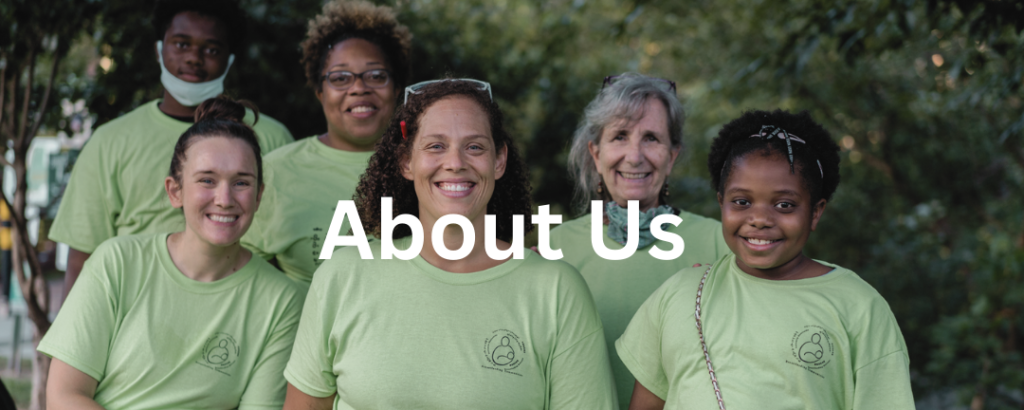
Advocating for First Food Equity in Durham, North Carolina
Breastfeed Durham is a health equity advocacy group dedicated to transforming systems so every family in our community—especially Black, Indigenous, immigrant, LGBTQ+, and low-income families—can feed their babies with dignity, support, and success.

Founded in 2018 around a kitchen table by six Durham residents committed to changing the racial disparities in lactation support, we have since grown into a multi-sector coalition of over 2,000 advocates, volunteers, professionals, and families. We lead Durham’s implementation of the Ten Steps to a Breastfeeding Family Friendly Community, an internationally aligned framework designed to embed breastfeeding support across healthcare, government, business, education, and family life.
Breastfeed Durham envisions a world where every family has the freedom to define their own infant feeding journey—and receives the support needed to reach their goals. We honor all methods of providing human milk: breastfeeding, chestfeeding, bottle-feeding, donor milk, and feeding through medical devices. While our work centers human milk feeding, we also provide culturally respectful support for families who use formula, understanding that informed choice and systemic barriers must be acknowledged together.
Our Mission
The mission of Breastfeed Durham is to support a more breastfeeding and family friendly Durham by advocating for policies and practices that support breastfeeding, chestfeeding, and human milk feeding, as outlined by the World Health Organization (WHO).
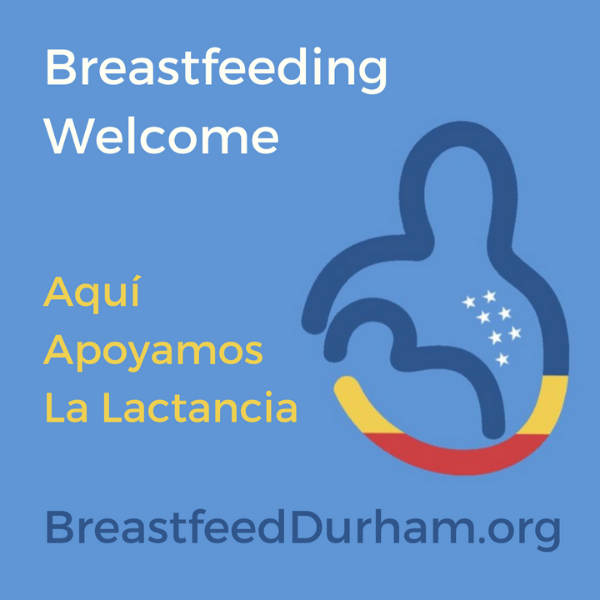
Our Vision
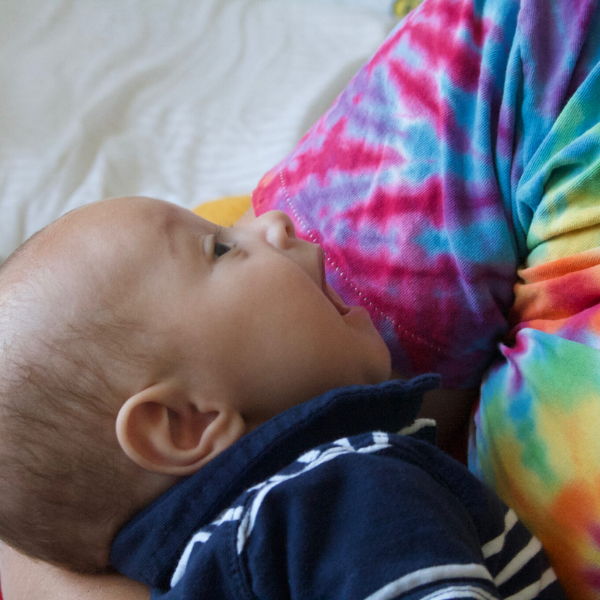
We recognize that breastfeeding is the “great equalizer,” as JP Grant stated during his tenure at UNICEF. Optimal infant feeding reduces disparities across the lifespan. We believe that creating a breastfeeding family friendly community can improve health equity outcomes, reduce maternal and infant mortality, and shift power back into the hands of families. We seek to provide education, resources, and system-level change that enables every family to meet their personal lactation goals—on their own terms.
Our Impact: Progress Since 2018
Since 2018, Breastfeed Durham has grown from a grassroots kitchen-table effort into a central voice for lactation equity in North Carolina. Our layered impact includes:
- Policy Development: We co-authored and shepherded the Human Milk Feeding Strategic Plan, adopted in 2025 by the Durham County Department of Public Health. This plan guides cross-sector work on maternal and child health equity.
- Childcare Transformation: We supported every childcare center in Durham County serving infants and toddlers (189 total) in integrating breastfeeding-friendly curricula, helping normalize infant feeding in early education.
- Educational Integration: Durham Public Schools formally met Step 10 in 2025, embedding breastfeeding education and supports across K–12. Duke University achieved Step 10, and Durham Tech began institutional changes to support lactating students and staff.
- Black Breastfeeding Coalition: We founded and fund the Black Breastfeeding Coalition, which has convened parents, IBCLCs, and faith-based leaders to design culturally affirming programs and host lactation support groups.
- Community Events: From Minority Health Month photoshoots to Black Maternal Health Week dance parties and policy advocacy days at the General Assembly, we work with community partners to center joy, culture, and growth.
- Emergency Preparedness: Breastfeed Durham played a pivotal role in launching North Carolina’s first Infant Feeding in Emergencies initiative, now guiding emergency response efforts in the western part of the state.
- Workplace Advocacy: We created the “Breastfeeding Welcome Here Award” to celebrate over 200 local businesses and nonprofit partners who provide lactation-friendly spaces and policies.
- Healthcare Collaboration: We provide technical assistance to OB/GYN clinics, pediatricians, and hospitals to help them meet Baby Friendly and Breastfeeding-Friendly Clinic criteria.
- New Free Lactation Clinic: We are working to establish Durham’s first free lactation clinic, staffed by IBCLCs and community health workers, offering accessible care to families without insurance or who are not eligible for Medicaid.
- Media & Messaging: Our stories have been featured in NC Health News, WUNC, Indy Week, and national policy briefings. We produce monthly newsletters, host the First Food Equity Series, and develop multilingual educational content.
- Mentorship & Student Engagement: We host MPH and MPP practicum students from Duke, UNC, Temple, and NC State, supporting future leaders in public health, policy, and maternal/child health.
- Intersectional Coalitions: We co-lead the Tea & Milk Coalition (serving AANHPI and Middle Eastern families), and collaborate with organizations like MAAME, Equity Before Birth, and MomsRising.
Our impact is layered, relational, and rooted in the lived experience of Durham families. We move at the speed of trust—and at the scale of community imagination.

Our Approach: Equity at the Center

We view breastfeeding not simply as a health issue—but as a racial, reproductive, economic, and birth justice issue. We ground our work in the lived experiences of those most impacted by systemic barriers.
We are unapologetically:
- Anti-racist
- Gender-inclusive
- Family-centered
- Trauma-informed
We use the Ten Steps to a Breastfeeding Family Friendly Community not only as a checklist but as a change strategy—designed to move Durham toward a more just, welcoming, and connected environment for all families.
Our Work Is Systems-Level
We partner with government, healthcare, businesses, and education to normalize human milk feeding across Durham:
- Government: We helped develop the countywide Human Milk Feeding Strategic Plan. We work with county and city leaders to pass policies, post public signage, and train emergency responders on breastfeeding law and infant feeding in emergencies.
- Healthcare: We advocate for Baby Friendly designations, help clinics apply for the NC Breastfeeding-Friendly Clinic award, and push for improved provider training, especially among OB/GYNs and pediatricians.
- Businesses: Through our Breastfeeding Welcome Here Award, we partner with local businesses to create inclusive environments for both customers and employees.
- Education: We work with childcare centers, K–12 schools, and higher ed institutions to embed breastfeeding education, create lactation-friendly policies, and celebrate young families.
- Faith and Culture: We recognize the critical role of faith institutions, storytelling, and cultural visibility. Our work is rooted in community—at barbershops, baby showers, festivals, and beyond.
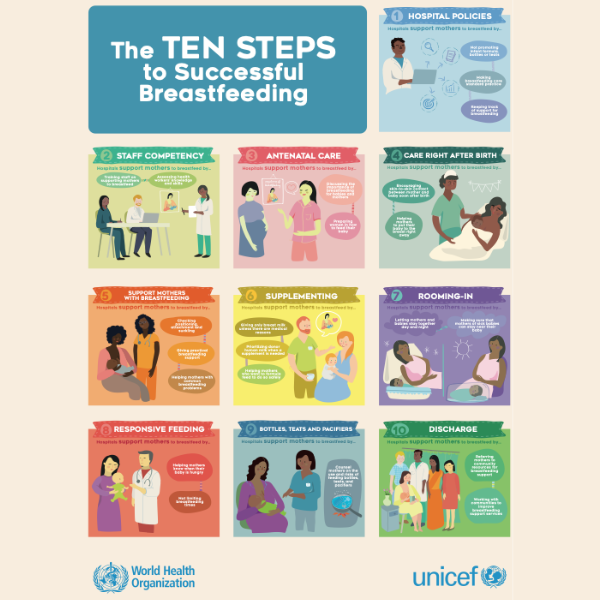
Led by the Community, For the Community

Breastfeed Durham is led by a multiracial, intergenerational team rooted in Durham. Our current leadership reflects the diversity of our city, including families with lived experience in WIC, Medicaid, Head Start, refugee resettlement, and community caregiving.
We are proud to be Black-led and to have launched initiatives specifically designed to uplift the needs of BIPOC families—including funding stipends for BPOC volunteers, supporting Black lactation professionals, and translating critical materials into Spanish and other languages.We do not view ourselves as a service provider alone—but as a movement-building organization, helping communities reclaim breastfeeding support as part of reproductive justice, birth equity, and public health.
Why It Matters
Durham’s breastfeeding initiation rates are strong—but racial disparities persist. As of the most recent data (2023):
- 91.5% of families initiated breastfeeding at Duke Regional Hospital.
- 90.4% at Duke University Hospital.
- However, only 20% of Black mothers in Family Connects Durham home visits were exclusively breastfeeding at 2–12 weeks postpartum—compared to a statewide average of 43%.
Despite similar intentions to breastfeed during pregnancy, many Black families are unable to meet their feeding goals. This is not an individual failure. It is a systems failure—caused by lack of paid leave, limited access to culturally concordant care, structural racism, and aggressive infant formula marketing.
Breastfeeding has proven benefits:
- Reduces risk of infant infections, sudden infant death syndrome, and childhood obesity
- Lowers maternal risk of breast and ovarian cancer, hypertension, and postpartum depression
- Saves families money and reduces food insecurity
- Supports long-term cognitive and emotional development
- Is environmentally sustainable and climate-resilient
In 2024 and 2025, our work has helped close the gap through:
- Countywide policies and a strategic plan
- Expanded access to donor milk and free lactation care
- Inclusive education in every public school
- Support groups led by and for BIPOC families
We exist to close the gap—and to build a Durham where every family can feed their baby with confidence, connection, and care.

Learn More
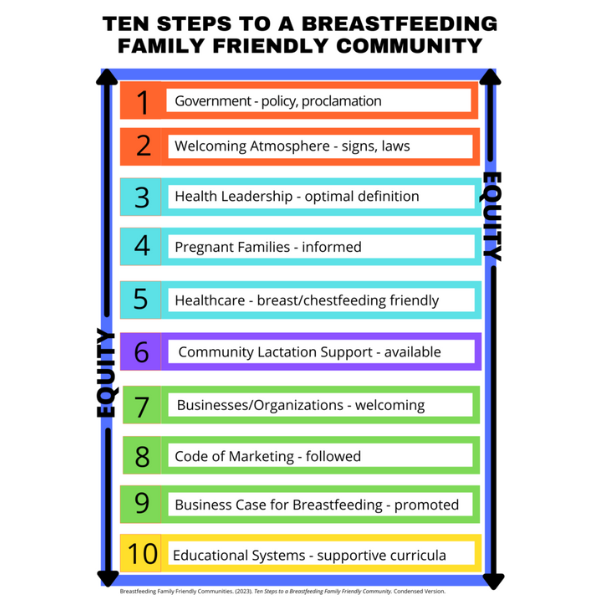
Contact Us
We invite funders, researchers, community members, and policy leaders to connect with us.
info@breastfeeddurham.org
